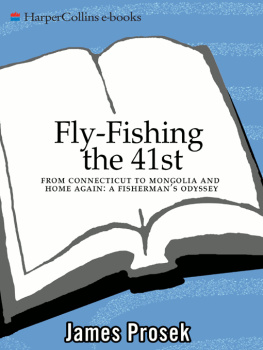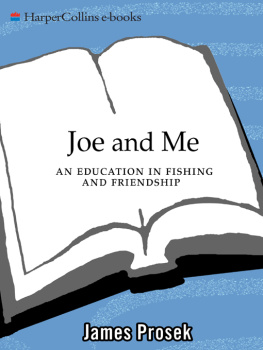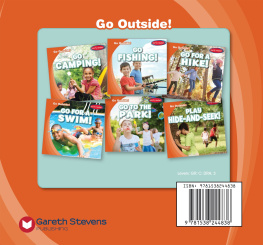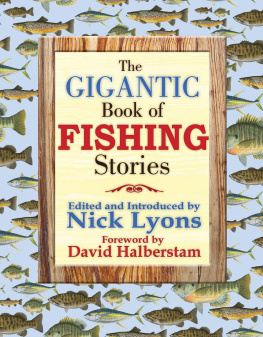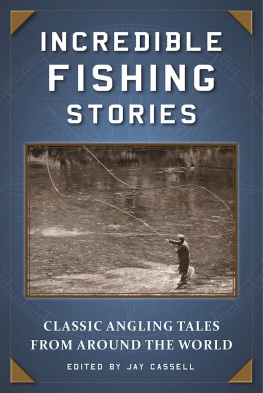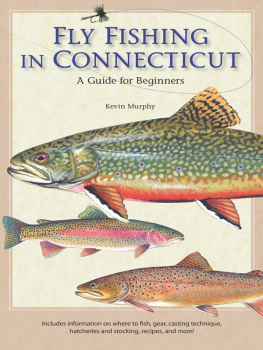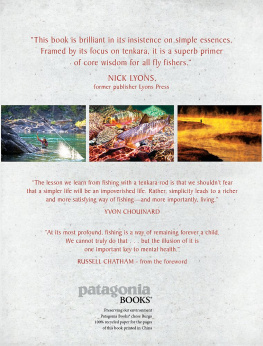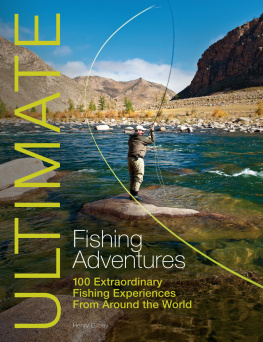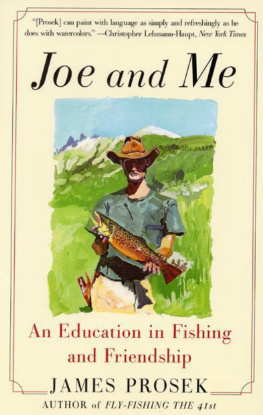O ne day, I left in a straight line from home at 41 Kachele Street, east along the 41st parallel, following my passion for fish. It was a journey not only away from home, but toward it; which is the beauty of traveling in a circle, and the irony of adventure. This suited me, for in the event that I strayedas I would likely take some latitude with the latitudeas long as I could find my way back to the 41st parallel I would not get lost.
My home latitude, 41N, contained along its length some of the great cities of the world: New York, Lisbon, Madrid, Naples, Istanbul, Tashkent, and Beijing. It was the approximate median of the ancient trade routes from China to Europe known as the Silk Road, the location of Mount Ararat, where post-flood life on earth, according to the Bible, began, and the northern end of civilizations beginnings in Mesopotamia. It harbored a rich variety of peoples, governments, climates, religions, and regions through Spain, the Balkans, Greece, Turkey, Armenia, Azerbaijan, Uzbekistan, Kyrgyzstan, China, and Japan. Many laymen, heroes, and conquerors had marched the 41st, among them Marco Polo, Genghis Khan, and Alexander the Great. They had crossed many riversthe Tajo, the Danube, the Amu Daryaat which I intended to stop and fish.
T HE A TLANTIC
M ay the tablecloths be dry, my father said when he dropped me off at the bus station in Bridgeport, Connecticut. I had heard the expression from him before, and it sounded to me now as almost a clichd metaphor for good luckwhen the ship is pitching in a storm the steward wets the tablecloths in the dining room to keep the plates and silverware from sliding off the table. As a former merchant marine my father liked to speak about the journey.
It was early December and it had begun to snow.
I was catching the bus to JFK airport, then flying to Savannah to board a freighter to Valencia, Spain. As I stood on the platform, a navy blue overcoat, a slim figure within, caught my attention. Peeking from beneath the hood of the coat was the face of an attractive girl. She followed me to the back of the bus and seated herself across from me, looking somewhat distressed.
Excuse me, she said, addressing me with a half smile. Do you know, is it possible to have money wired to the airport? I left my wallet in Guilford down the coast, and there is no time to turn around and get it.
She had saved me from trying to speak to her first. Where are you going? I asked her.
To France, where I live, she said. Her cheeks were flushed like ripe persimmons. And you?
Im going fishing along the latitude of my home.
Oh, she replied. I like to fish. I feel about fishing the way I feel about Turgenev, and all things I know about the country.
The bus began to move.
Why were you in Guilford? I asked.
My father lives there. I grew up in Guilford, but my mother is French. I moved back to Normandy with her when they divorced.
I dont know your name, I said, Im James.
Yannid, she responded. But where are you headed?
To Spain, then Italy, where I plan to spend Christmas with a friend. Im coming to Paris in the New Year to meet a fisherman.
Rouen is only one hour to the northwest by train. Dont stay in some cheap hotel room, stay with me.
Be careful, I said, I may take you up on it.
Its not an idle offer.
She took some paper and a pen out of a small brown leather bag and flattened her blue coat to make a platform for writing.
Yannid Browne, she wrote, 23, Eau de Robec, Rouen.
Im a student of medicine at the university in Rouen, she said.
The bus labored through New York traffic and at last stopped at the airport terminal. Yannid stood up and got off, wishing me a good trip, and I wished her one.
My plane from New York landed on time in Savannah, Georgia. I spent the afternoon walking along the Savannah River looking for fish, watching the pearlescent currents swirl. It smelled of both the city and the sea.
I boarded my ship at Garden City Terminal the next morning, accompanied by the port manager, Michael Tomlin. We walked together up the tall stairs of the container ship to its deck. It was there I met Ulrich Gnther, the captain.
Dressed in his heavily starched white shirt with bumblebee epaulets, Gnther sat us down in the ships conference room and reviewed my papers. He and Tomlin spoke informally between business matters.
Join us in the mess at seventeen hundred for dinner, Michael, will you? Captain Gnther said.
No, thanks, sir, Im going home to spend time with my wife.
I wish I was with my wife, Gnther said and took his black mustache between his forefinger and thumb.
Were puttin up the Christmas tree, Michael said, licking a chubby finger. His face looked fresh and tubbish beside the lean and weathered Gnther.
Early, isnt it? Gnther asked, or is it a fake?
Its a fake one.
Oh, said Gnther, looking down at the papers. Last year we bought our Christmas tree in Portland, Oregon; this year it will be in La Spezia, Italy. We will spend the holiday in the United Arab Emirates, which I dont like very much.
At dinner, as the only passenger on the 750-foot freighter ship, I was instructed to sit beside the captain. We could hardly hear ourselves over the din of machinery working to unload large steel containers filled with cargo. Loud metallic booms and bangs echoed throughout the ship. Sometimes the cranes screeched under the weight of a container and bellowed like a whale song; sometimes the raucous bangs sounded like a Dumpster full of raccoons.
At breakfast the next morning I met the ship steward, Kokoria. He introduced himself when he came to serve me my eggs and ham. He put down my food and orange juice on the checkered tablecloth and extended his chubby hand. I am Kokoria, he said.
That afternoon, under the guise of delivering tea and butter cookies, Kokoria came into my small cabin without knocking.
I am from Maiana Island, he told me, putting down the tea on the table where I was reading. It is part of the Kiribati chain in the South Pacific. I found the purple aloha shirt he wore amusing. He licked his fingers like he had just been eating a cinnamon donuthis balding head with kinky strands of hair looked rather like a coconut. I put down my book and laughed a bit.
You are happy, sir? he said. Where are you from?
Im from New York, I replied, assuming he would not know where Connecticut was.
I have butter cookies for you too, he said, looking at me. He took an interest in what I had been reading. Good book, sir?
Its the Odyssey. You heard of it?
No, sir, I cannot read. Kokoria sighed. But I am learning. What is it you do, sir?
I write books and illustrate them, mostly about fishing.
Oh, good sir, that is good work. He sat down on my bed and took out a pack of cigarettes. Do you mind, sir?
Not at all.
He lit his cigarette and puffed at it delicately between his indelicate lips.
You should come to Kiribati and write about my island, he said. But there is not much to do. We only fish and catch lobsters and gather coconuts. You may find that boring. We make wine from the coconut flowers, we catch land crabs to eat. We get our fresh water from a well. We have no electricity, only the sunequal days and nights all year. Twelve hours of the day we fish, twelve hours of night we, ha ha ha. Kokoria laughed. There wouldnt be much for you to write about. The women only like it in one position, and if you do it any other way they slap you in the face.

